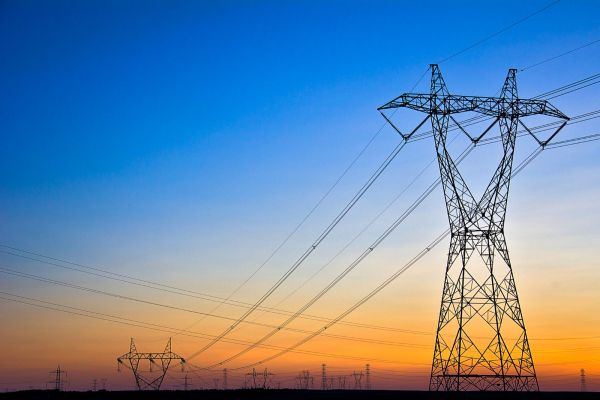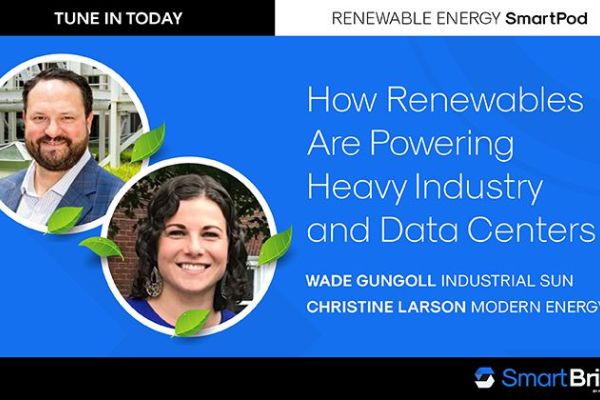Industrial-size Energy Needs, Met With Industrial-strength Solar for Manufacturing
Insights
Jun 08, 2023
Written by David Livingston

Materials manufacturing is among the most energy-intensive facilities — but it doesn’t have to be this way, thanks to the fast-rising role of industrial solar in the sector.
In 2020, the industrial sector accounted for 33% of the nation’s primary energy use and 30% of energy-related carbon dioxide (CO2) emissions.
Why the hefty impact? Hard-to-abate industries like steel, aluminum, and semiconductors use hard-to-decarbonize energy for everything critical to their production — and in turn the collective demands of a modernized society — from assembly and process heating and cooling, to lighting, heating, and air conditioning.
They also generate direct emissions with processes like onsite fossil fuel combustion for heat and power necessary for processes, as well as indirect emissions from grid-generated electricity consumption.
And as you might expect, energy-intensive industries are more vulnerable to spiraling and volatile energy costs. In steel manufacturing, for example, energy costs represent as much as 20%–40% of total production costs globally. When energy prices go up, production is negatively impacted, as happened to steel producers in the EU last year.
Turning the tide on these statistics may appear daunting. But doing the hard thing, in this case decarbonizing energy-intensive sectors, is key to achieving both corporate economic objectives and the nation’s climate goals.
The stakes are so high that the U.S. Department of Energy’s Office of Energy Efficiency and Renewable Energy recently earmarked $156 million to support innovation in industrial emissions reductions.
Already low-cost renewable energy is emerging as an important path forward for some of the most energy-intensive sectors, including steel, materials manufacturing, and other sectors. For example, process heat accounts for half of onsite energy use. By electrifying this process with industrial heat pumps (powered with renewable energy), manufacturing leaders can play a vital role in the path to decarbonization and energy security.
Three sectors primed for industrial electrification
Let’s zoom in on how industrial solar can benefit the following three energy-intensive sectors in particular: steel, semiconductors, and aluminum.
Industrial solar for steel
Producing one metric ton of steel generates 1.8 metric tons of CO2 emissions, and global steel manufacturing comprises 8% of global CO2 emissions.
Steel production processes vary of course, and some are especially well-suited for industrial electrification. For example, by investing in renewable energy and using electric arc furnaces instead of blast furnaces, steel manufacturers can become more energy efficient while producing less carbon dioxide.
Amid general pressures to decarbonize, steel companies that move quickly to decarbonize operations could gain a competitive edge as new market opportunities continue to develop. And major companies are taking note — backed by action. Nucor, one of the largest steel producers in North America, for instance, is lowering its carbon footprint with electric furnaces and solar power purchase agreements.
Industrial solar for semiconductor chip fabrication
As primary components themselves of mass electrification, semiconductors are central to many key technologies in the clean energy transition, from solar PV inverters to electric vehicles. They’re also another energy-intensive manufacturing primed for an energy update.
Chip manufacturing accounts for most of the carbon emissions attributable to hardware systems — moreso than hardware use and energy consumption.
So major semiconductor companies have been actively setting emissions goals, including Infineon, which plans to slash emissions by 70% by 2025, with carbon neutrality by 2030, and Intel, which aims for 100% renewable electricity by 2030. Meanwhile the 65 (and counting) members of the Semiconductor Climate Consortium pledge to hit net-zero emissions by 2050.
Industrial solar can help these and other companies achieve critical decarbonization goals — and in turn help drive the clean energy transition while achieving business goals.
Industrial solar and aluminum
Coal-fired power plants provide roughly 55% of the electricity needed for aluminum smelting, contributing to making the aluminum sector one of the highest-emitting industries in the world, responsible for about 2% of global GHG emissions.
Policy and economic pressure is mounting to turn those numbers around. Members of the World Economic Forum’s First Movers Coalition, for instance, have committed to a goal that at least 10% of yearly aluminum procurement will be produced via near-zero emissions processes by 2030.
Industrial solar offers a bright way forward for aluminum manufacturers to power electrified boilers, calciners, and smelters with clean, renewable power. For starters, aluminum smelting operations drawing electricity from the grid could enter into virtual power purchase agreements. They could also potentially support new renewable projects that help drive decarbonization while protecting against volatile energy prices. Better yet, onsite net-metered solar can bring even more scope emissions reductions while providing low-cost, long-term power supply.
Manufacturing companies benefit from industrial solar in more ways than one
Net-metered industrial solar can deliver cheap, reliable power to keep major manufacturing facility operations on pace with demand — while helping move the needle toward decarbonization and optimizing op-ex.
But the benefits extend beyond that, too. As we speak a new competitive advantage is emerging. Commodities such as steel are starting to differentiate — and get procured — on the merits of their emissions footprint. Think green steel as a subset of all steel, or sustainable aviation fuel as a subset of all jet fuel.
For manufacturers looking to stay well-positioned in today’s U.S. and global markets, net-metered industrial solar reduces scope emissions, cuts costs, and provides a lower-carbon-intensive product to market to downstream buyers for their commodities on the basis of climate-differentiated embodied emissions.
Learn more about net-metered industrial solar and how it can support your energy-intensive manufacturing business. Reach out to our team at info@industrialsun.com




